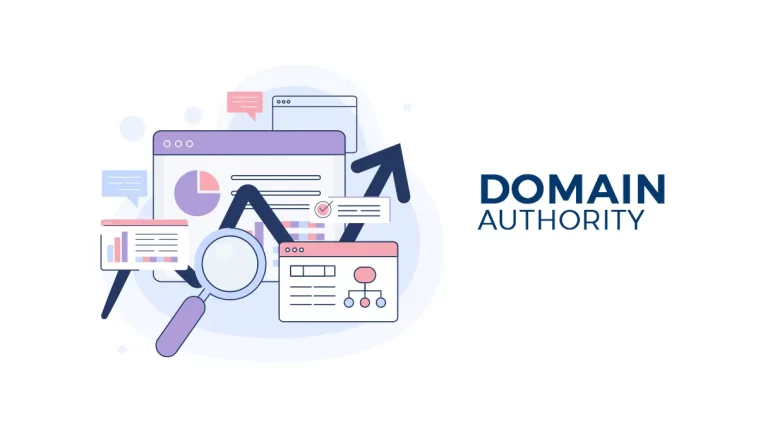In the ever-evolving landscape of online presence, domain authority mastery plays a pivotal role in determining the visibility and trustworthiness of your website. For WordPress webmasters, understanding and domain authority mastery are essential for achieving higher search engine rankings, attracting more organic traffic, and establishing credibility in your niche. In this comprehensive handbook, we will delve into the strategies and techniques that will empower you to become a domain authority master.
Understanding Domain Authority:
Before embarking on your journey to domain authority mastery, it’s crucial to grasp the concept itself. Domain authority is a metric developed by Moz that quantifies the credibility and trustworthiness of a website.
It’s measured on a scale from 0 to 100, with higher scores indicating a stronger online presence. Factors influencing domain authority include the quality and quantity of backlinks, content quality, user experience, and more.
1. Exceptional Content Creation:
The cornerstone of domain authority is high-quality content. WordPress, known for its content management capabilities, offers the perfect platform to create compelling and informative content. To master domain authority, ensure your content is:
- Relevant and valuable to your target audience.
- Well-researched and factually accurate.
- Free from spelling and grammar errors.
- Engaging and easy to read.
Consistently publishing outstanding content not only attracts readers but also encourages other websites to link to your valuable resources.
2. On-Page SEO Optimization:
Optimizing your content for search engines is a fundamental aspect of boosting domain authority. Utilize on-page SEO techniques within your WordPress posts and pages, including:
- Keyword research and integration.
- Optimized meta titles and descriptions.
- Use of header tags (H1, H2, H3) to structure content.
- Image optimization with descriptive alt tags.
Remember that search engines reward well-structured and SEO-optimized content with better rankings, ultimately elevating your domain authority.
3. Build High-Quality Backlinks:
High-quality backlinks are those that come from authoritative and reputable websites within your niche. These backlinks have the potential to positively impact your site’s SEO and domain authority. Here are some examples of high-quality backlinks:
- Editorial Backlinks: These are backlinks that occur naturally when another website references your content as a valuable resource. When respected websites in your industry link to your content without any prior arrangement, it’s a strong signal of trust and authority.
- Guest Posts on Authority Websites: Contributing guest posts to well-established websites within your niche is an excellent way to earn high-quality backlinks. These websites often allow guest authors to include a link back to their own site within the author’s bio or content.
- Citation Links: If you have a physical business location, local citations from authoritative online directories, like Google My Business, Yelp, or industry-specific directories, can be high-quality backlinks. These directories are trusted sources of information.
- In-Depth Research or Studies: Creating in-depth research reports or studies that provide valuable insights and data can attract backlinks from other websites looking to cite your research as a source of authoritative information.
- Educational and Government Websites: Backlinks from educational (.edu) and government (.gov) websites are highly regarded by search engines. If you can obtain relevant backlinks from these domains, it can significantly boost your site’s authority.
- Industry-Specific Forums and Communities: Active participation in industry-specific forums, discussion boards, and online communities can lead to backlinks from your forum profile or from content you share when it’s genuinely helpful to the community.
- Links from Influential Bloggers and Influencers: Collaborating with influential bloggers or social media influencers can result in high-quality backlinks when they reference your content or website. Influencers’ endorsements can carry substantial weight.
- Press Coverage and Media Mentions: When your website or content is featured in news articles, blogs, or reputable online media outlets, the backlinks from these sources are considered high quality and can significantly enhance your authority.
- Links from Nonprofit and Charitable Organizations: If you are involved in charitable or nonprofit activities, backlinks from these organizations to your website can be seen as highly authoritative, as they reflect a commitment to social causes.
- HARO (Help a Reporter Out) Mentions: Responding to queries on platforms like HARO and being quoted as an expert in articles or news stories can result in backlinks from credible news sources and publications.
- Roundup Posts and Expert Opinions: Some websites create roundup posts or seek expert opinions on specific topics. When you are included in these posts as an expert, you can receive high-quality backlinks.
- University or Research-Based References: If your content is used as a reference in educational or research materials, it can lead to high-quality backlinks from universities or research institutions.
- Organic Social Shares: While not traditional backlinks, the natural sharing of your content on social media can indirectly contribute to high-quality backlinks when other websites discover your content through social channels and link to it.
In all cases, the quality and relevance of the source linking to your site are key factors in determining the quality of the backlink.
When these sources are respected and trusted within your industry or online community, the backlinks they provide can be highly beneficial for your website’s SEO and domain authority.
4. Mobile Optimization:
In an era dominated by mobile devices, optimizing your WordPress website for mobile users is vital. Ensure that your site is responsive, loads quickly on mobile devices, and offers a seamless user experience. Google’s preference for mobile-friendly sites can have a direct impact on your domain authority.
5. Website Speed:
A fast-loading website not only pleases users but also appeals to search engines. Utilize caching plugins, optimize images, and streamline your site’s code to improve loading times. A speedy website enhances user experience and reflects positively on your domain authority.
6. Secure Your Website:
Security is paramount for both users and search engines. Invest in an SSL certificate to enable HTTPS, keep your WordPress core, themes, and plugins updated to patch security vulnerabilities, and implement strong passwords and two-factor authentication (2FA) to protect your site from potential threats.
7. Social Media Promotion:
Leverage social media to promote your content and engage with your audience. Share your WordPress posts on various platforms, encourage user interactions, and collaborate with influencers. Social signals play a role in search engine rankings and, consequently, domain authority.
8. Consistent Branding:
A strong and consistent brand identity extends beyond your website and affects your domain authority. Ensure that your branding elements, such as your logo, color scheme, and messaging, are uniform across your website, social media, and marketing materials.
9. Monitor Your Analytics:
Regularly monitor your website’s performance using analytics tools. Track metrics like traffic, user behavior, conversion rates, and sources of traffic. Analyzing this data will provide valuable insights into areas that require improvement.
10. Build High-Quality Backlinks:
Backlinks are vital for boosting domain authority. Focus on acquiring quality backlinks from authoritative sources in your niche. Utilize guest posting, influencer collaborations, and the creation of linkable content to attract high-value links.
In conclusion, mastering domain authority is an ongoing process that requires dedication, continuous learning, and adaptation to industry trends. As a WordPress webmaster, implementing these strategies will put you on the path to achieving domain authority mastery.
Over time, your website will become a trusted resource in your niche, attracting organic traffic and building credibility, all contributing to a higher domain authority that opens doors to greater online success.



Comments